89. America's struggle with the Franchise.
Walking from where I get off the TARC* this morning over to where I work, I pass through Louisville's town square, called Jefferson Square. This is the public space across from the building the Mayor of Louisville - Jefferson County Metro calls Metro Hall but everyone else calls the Courthouse, or some the Old Courthouse. The Jefferson County Clerk's Office has erected in the park an art display, showing the work of elementary, middle, and high school students based on the theme of voting. Whether intended or not, many include in their art work the idea that voting is a right (and while none carry that further, the implication therefrom is that is it not just a privelege). As far as federal elections are concerned (other than that of the president and vice president, which are controlled by an admixture of state and federal law), I agree - it is a right, but one the control of which has been handed off to the states under the first phrase making up Article 1, Section IV of the United States Constitution. As far as State and Local elections are concerned, the subject is not addressed in the Constitution, and thus is left to the states, under the Tenth Amendment.
So, the idea of voting as a right is a two-pronged event, one involving federal races and the other involving state and local races. Thus, the idea of restoring voting rights to those from whom they have been taken for various reasons, is also a two-pronged process, involving both the federal legislature as well as those of the 50 states allegedly united as one in these United States of America. For a moment, I want to discuss the state and local process.
Nearly all the states will not allow a person convicted of a felony the right to vote while incarcerated. In many of the states, that right is resumed upon completion of a sentence. In a few others, some time must elaspe free of further convictions for the right to be restored, or some other restrictions must be met. In only two states, Kentucky, and our parent commonwealth, Virginia, are felons disenfranchised for their lifetimes in all categories. The civil right to vote in those two states may only be restored by an Executive Pardon from the governor. The 48 remaining states, as well as the District of Columbia, all have less restrictive laws in this regard.
As to the federal elections of members of both houses of Congress, you may have caught my reference to the first phrase of Article 1, Section 4, where the Constitution relegates to the states the laws governing by whom senators and representatives are elected. The second phrase of Article 1, Section IV, allows that "the Congress may at any time by law make or alter such regulations, except as to the places of choosing Senators." Of course, it is unlikely that the Congress would of their own will wander into the frying pan represented by such a move. But they should. The highest ideal of a democracy, the style of government underlying our republic, is universal suffrage. It is an ideal with which the United States has struggled. In our early days, dating from the 1789 ratification of the Constitution, the right to vote was severely restricted to only a few people, nearly all white, wholly all male, and mostly property holders. In fact, a law in 1807 specifically denied the right to vote to women.
By 1830 most states had abolished the need to hold property as a prerequisite to vote. Kentucky took a step forward in the 1830s, allowing suffrage for the widows of males who had the right the vote.
Forty years later the Fifteenth Amendment gave black males the right to vote, but many states - and not just in the South - found ways to keep blacks from voting, either by literacy tests or grandfather clauses - some of which lasted until the Voting Rights Act of 1965, delivered to Congress and signed into law by Lyndon Baines Johnson abolishing all such obstacles. It was one of several civil rights laws passed under LBJ, who rather than Bill Clinton, could and should be afforded the sobriquet, "the first black president."
Wyoming was the first state that allowed full voting rights to women, in 1889. In 1924, that state elected the first female governor in the history of the Republic, something Kentucky has done only once, and 59 later than Wyoming. Women were granted the franchise nationwide by the Nineteenth Amendment, ratified in 1920, although not without a fight, a fight sometimes headed by those same females being denied the right to vote.
Next came the question of allowing Native Americans, whose land we came to occupy, the right to participate in elections. Congress first addressed the issue in 1924, but the matter wasn't resolved in full until 1962 when New Mexico became the last state granting Native Americans full participation.
In 1961, residents of Washington, D.C., were given the right to vote in federal elections, but their voting representation in the Congress has not yet been granted, and is a current topic of discussion 46 years later in the current legislative session.
As stated above, the 1960s under President Lyndon Johnson brought many changes to voting patterns, positive gains mostly for African Americans and directly addressing the continuing problems mostly in the South. The Voting Rights Acts of 1964 and 1965 and ther Open Housing Act of 1968 are just two of many progressive accomplishments made on the domestic front in this decade. Were it not for a foreign war with no seemingly end or purpose, Johnson's administration would have been one of the most successful in the history of the Republic.
But, it didn't end there. Under President Nixon (who was looking for new voters in his bid for re-election) the Twenty-Sixth Amendment gave voters between the ages of 18 and 21 the right to vote in federal elections, a move some states had already allowed in state and local elections.
Later in the 1970s, Congress amended the earlier Voting Rights Act to enable poor speakers of English to participate in the political process, giving permission for some states to print their ballots both in English and in other languages. In the early 1990s, led by Kentucky's United States Senator Wendell Ford, the Congress enacted what has come to be known as the Motor Voter bill, increasing the number of folks registered with the intention of increasing the number of folks participating in the electoral process.
Obviously, the idea of suffrage, or extending the franchise, is an evolving idea. There have been many changes as enumerated above. They will continue to more as our experiment in a democratic-republican form of government moves along its timeline, now in its 231st year. One of those changes should be the restoration of the civil right to vote to those who have completed the sentences placed upon them for their wilful disobeyance of the law. Once such a debt to society has been paid, their account should be marked "paid in full" and their right to participate in our experiment in governance restored, thus moving the Republic one step closer to a higher form of democracy.
Hopefully in the future, we'll be able to address the problem of getting people who have the right to vote to actually do so. But that is a discussion for another day.
By the way, later on today in the public space across from the Court House, a celebration of the Arts will be held with displays and vendors and food, mostly attended by some school age kids, as well as the Sixth and Jefferson civic community. Across the street, on the sidewalk between the Court House and City Hall, some protesters will be marching military style, complete with an anthem of their own, protesting some of the pay practices of a drywall company hired to renovate some of the offices of the Fiscal Court building.
Ain't Democracy great!
* TARC: Transit Authority of River City, since 1974, Louisville's publically owned mass-transit system, serving Louisville, Jeffersonville, and New Albany, as well as parts of their respective outlying counties.


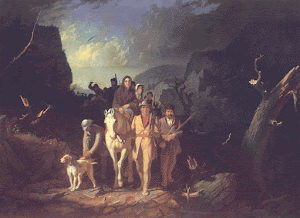



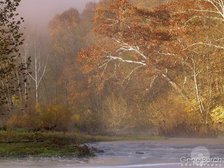








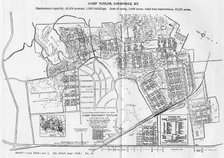
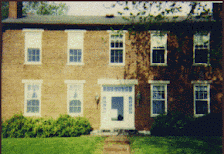

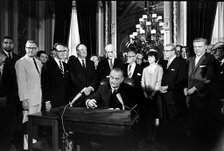

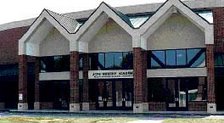
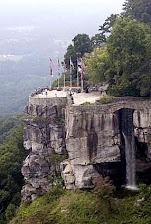

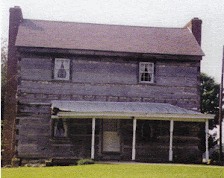
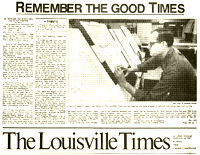
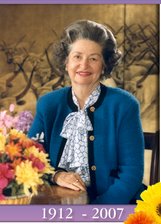
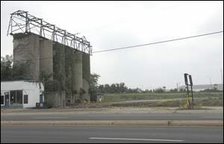
No comments:
Post a Comment